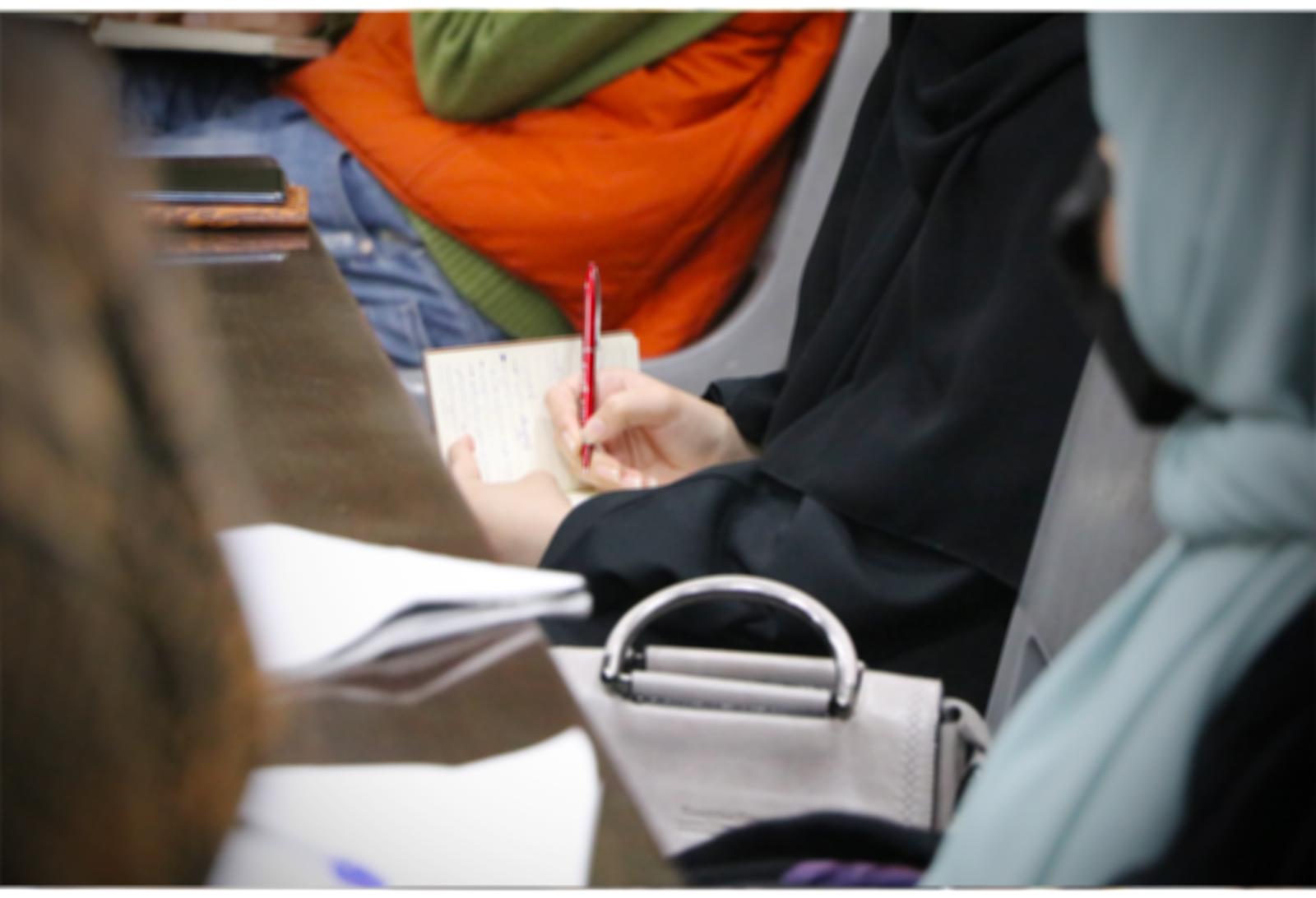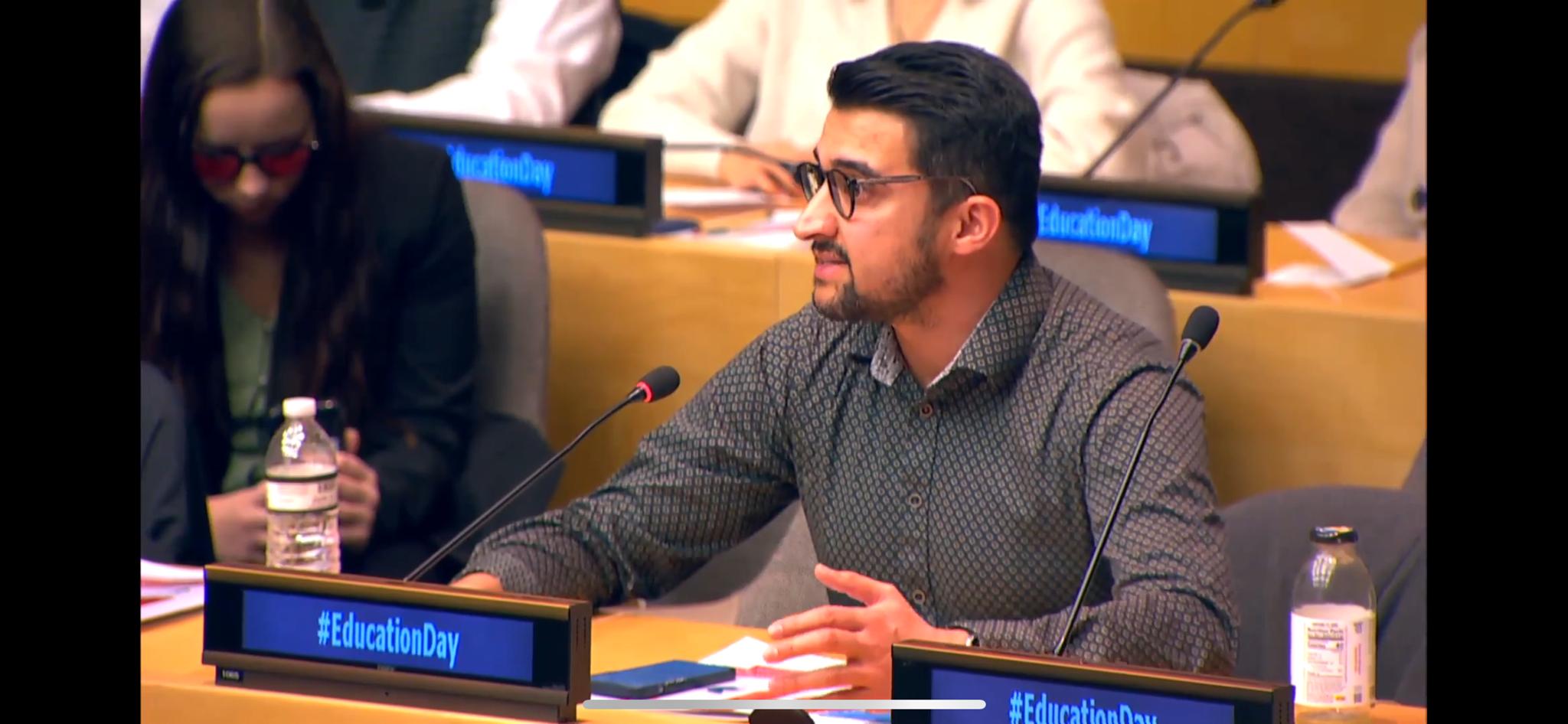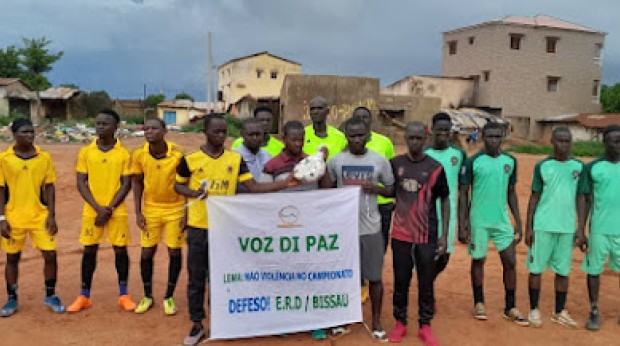
Bringing Hope and Light to the Lives of Women and Youth Amid Darkness
‘Members Stories’ is a new series of articles issued by the Civil Society Platform for Peacebuilding and Statebuilding (CSPPS) in direct collaboration with its members, featuring the work of its members.
Curious to find out more about our colleagues in Afghanistan? This week we talked with Ajmal Raymar from Afghans for Progressive Thinking (APT). He spoke to us about the activities and programmes APT offers, his personal motivation for working on the promotion of youth and girl’s rights, next to highlighting the current situation in Afghanistan and what impact this has on the access for education to women.
The story behind Ajmal Ramyar in promoting youth and girl’s rights…
‘My inspiration to advocate for education and a culture of peace in Afghanistan stirs from my personal experiences in a country like Afghanistan where there has been always war and conflict. As a child and adult, I also witnessed gender inequality before, during the first rule of the Taliban and during the republic. In 1996, when the Taliban took control of Afghanistan for the first time, my family was forced to flee Afghanistan and seek refuge in Pakistan because my sisters were not allowed to attend school. Like my sisters, millions of girls were denied access to education and could not pursue their dreams. While my sisters were privileged to continue their education in Pakistan, millions of girls in Afghanistan did not have this privilege. They were confined to their homes and deprived of learning opportunities.
Upon our return to Afghanistan in 2001, after completing my education, I continued to advocate for education and promoting a culture of peace through a non-profit organization, Afghans for Progressive Thinking or APT Youth in Afghanistan. Leaving Afghanistan for the second time in 2021 due to the Taliban's takeover reinforced my commitment to helping my country and supporting young people, particularly women and girls, who continued to experience the same fate of being denied from all their basic rights.
As the Head Executive of Afghans for Progressive Thinking (APT). I drive the organization in the service of its mission—transforming lives by advocating for the rights of women and youth. I've focused our efforts on empowering youth and advocating for peace in Afghanistan. I manage the selection of and programming for groups of young people, giving them the opportunity to build critical skills for new ideas, pursue higher education, and to create change in their communities. I'm particularly proud of our work with displaced children, providing them with much-needed but often difficult to access education. In Afghanistan, I've seen how education can transform lives, breaking poverty cycles, and promoting sustainable development. It's not just about attending school but empowering women and girls to shape their futures. Therefore, alongside my work at APT, I managed an elementary school for internally displaced children and contributed to youth advocacy at the United Nations. These efforts highlight my dedication to education and peace in Afghanistan.
For the past 20 years, 2 ½ millions of young people have been out of school. After the takeover of the Taliban in 2021, the numbers of women being in education have fallen to zero.[1] There have been severe restrictions from the Taliban in putting women in school and education systems, but also in accessing area in the public.
[1] https://www.unesco.org/en/articles/let-girls-and-women-afghanistan-learn
A space of hope for youth and girls in Afghanistan; the future generation.
Afghans for Progressive Thinking (APT) is a youth-led organization working on addressing human rights crises, with a specific focus on women’s rights, while simultaneously promoting girls’ access to education through creative and impactful initiatives. You may find more information about the organization here.
APT works on promoting human rights by raising awareness of the human rights crisis that includes regressive policies and restrictions for women in public areas in Afghanistan. With the restrictive policies on access to education, APT helps connecting youth, women and girls with mentors abroad by providing them mentorship and leadership programmes.
One of the programmes APT offers are mentorship programmes. This includes six to eight online sessions, helping women finding universities, completing applications processes for university and scholarships. Ajmal shared with us that out of 60 supported women, they recently helped ten women get education in Pakistan and ten other women get online education in the USA and UK primarily. Several others received offer letters from universities abroad to continue their education. Shukria, a recent participant of our Mentoring program, was accepted into AFS Global STEM program. This remains a successful and valued programme that provides guidance for Afghan women to continue education abroad and move beyond the restrictions in the country. Nevertheless, Ajmal explained to us that they face various challenges in the programmes including, fixed scholarships and the complexity of the admissions process. Furthermore, he elaborated that, often, when universities see that their application comes from Afghanistan, it is often rejected too due to the complexities of admission. The programme often offers ways through third country, but is often challenged by extensive visa processes. The embassies ask for the potential future students documents about their income, proof that they will return to Afghanistan and show that they can work once they go back to Afghanistan.
In our discussion with Ajmal, he further emphasizes about the spillover effects of the restrictive policies in the country on women. An element that has taken further focus in the past years is the issue of mental health. He states that mental health issues have doubled since the return of the Taliban. The regressive policies have shown to have severe consequences on women’s health as they feared to share their fears. Trauma, pain, anxiety and a sense of hopelessness has increasingly been developed amongst women and young girls over the years. Through skills development activities, APT offers a space for people to connect with their peers and discuss their traumas through healing sessions. This remains essential, as this is not addressed at the governmental level.
A way to find a sense of empowerment and community:
APT engages in various activities to expand and improve their skills, such as through their creative writing programme. APT has an initiative in which women write and publish articles about what is happening in Afghanistan. This way, they support them in writing, think critically, raise consciousness and awareness, and feeling empowered. They can continue with their personal motivation and inspiration and get involved and connect with their communities and also the international community. It is a powerful tool to share their knowledge and skills, and continue to update and influence the international community on what is happening amongst women in Afghanistan. You can find their latest edition of writing called ‘Advocacy through the Power of Creative Writing and Storytelling’.

Building Bridges for External Engagement Create a space outside of Afghanistan:
For those not informed or not engaged. Give a better understanding of what is happening in Afghanistan, network outside of Afghanistan to continue engaging in what is happening in Afghanistan. Many of them want to continue mentoring and involving in the activities, do more on their own.
Highlighting On-the-Ground Realities Globally:
In the current situation (limitation to media), hard to promote human right situation, focus helping organizations that focus on advocating. Writing pieces, policy briefs with feedback, sharing their stories and publishing them to offer more visibility among the international community. Policy briefs/writing shared with UN, EU, etc. You can read the latest APT policy briefs written by young women in Afghanistan and aiming at amplifying their voices here.
Engaging with the local community from outside of Afghanistan:
Engaging with local communities can sometimes be very difficult for APT members who have fled the country and are working outside Afghanistan. This geographical remoteness limits certain parts of their work. It is particularly difficult for the organization to engage with girls. But the impact of their work motivates them to continue working as a platform for people in Afghanistan, but also for Afghan refugees.
The continuous need for dialogue and contact with distinct stakeholders with different stakeholders: a selective task
It is very important for APT to keep the dialogue going with the different stakeholders. In this context, the organization focuses to work with organizations that still have an affiliation with the de-facto government and with international institutions that are holding the Taliban accountable for their violation of human rights to continue their advocacy work. Many consultations were held in order to raise awareness, and ensure that women and youth are included in all their actions. However, this isn’t always the case and civil society has deliberately been excluded from meetings. During the recent Doha Meeting, which was held on the June 30th and July 1st, not only it omitted vital discussions on an all-inclusive government in Afghanistan and violations of Human rights, it also removed women’s issues from the agenda and failed to invite female representatives and civil activists from Afghanistan and exile. Presumably, on the Taliban’s insistence. There had been criticism and reprehensions, before the third session of the Doha was scheduled to be convened due to the possible exclusion of women, but it did not weaken the UN’s resolve and, ultimately, resulted in the disregarding of the voices of women and civil societies. At APT, we gathered signatures of more than 100’s of young women from different provinces who considered the sideline of women representatives not acceptable and demanded from the UN to its own principles.

Facing challenges that transcend borders
The hostile environment in which APT operates exposes the organisation to many challenges. In Afghanistan the access to electricity and internet is limited for many people and interrupted at times, which makes the work of APT very challenging. To overcome this challenge, APT uses its connections and networks present in Afghanistan to connect with women and to engage them in their work. They also promote their work and get their messages across through social media.
One of the biggest challenges APT is meeting concerns fundings. They are looking for fundings to sustain their work. Because of the risks involved in being in Afghanistan, many APT members work from different countries. These members need a particular support from APT, especially financially. As a first step, the APT has organized events and created spaces where Afghan refugees can make contact. They are currently considering the design of activities to further support these refugees.
A message to everyone: we cannot forget about the women in Afghanistan
Reflecting on the situation and the current development at the international level, Ajmal emphasized the need to continuously focus on education and women in Afghanistan, as this has received less attention because of the humanitarian crises in the country. At the international level, concerns are shared and publications are written, however actions are not taken. While humanitarian needs require immediate attention, the human rights crisis also demands our urgent focus. We cannot address humanitarian concerns while turning a blind eye to human rights violations.
The current happenings in Afghanistan are a crucial learning for other countries with the presence of anti-government and how these are controlling the population and the media, and their effect in neighboring regions.
Teaching extremism to younger generations give new generations no base to believe in human rights or women rights, and would inherently put a new generation at risk. Those international organizations and actors who care about these issues should continue working on this. The international community should continue their engagement with the communities but also find effective ways to support organizations in and out of Afghanistan and support youth-led initiatives to continue advocacy. The priority should lie in education and creating opportunities, whether this is through online education or raising finances such as scholarships so young women can get opportunities. Women’s rights and Afghanistan are losing focus. It might be difficult, but it is not impossible.

